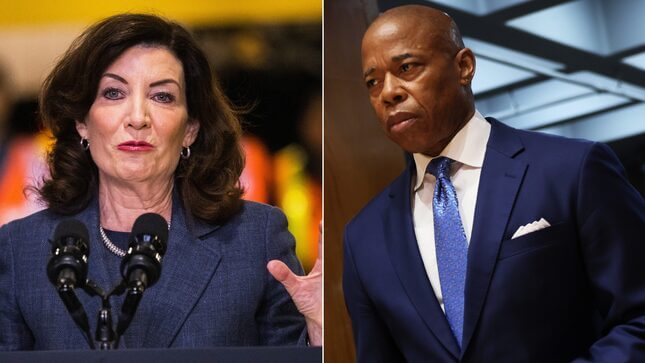New York Officials’ Responses to the Murder of an Unhoused Man Have Been Horrible
Gov. Kathy Hochul and NYC Mayor Eric Adams both said we know too little about Jordan Neely's death to condemn it, despite literal footage of the killing.
Entertainment

After Jordan Neely, a Black unhoused man, was killed by a fellow subway passenger in Manhattan on Monday, local officials including New York City Mayor Eric Adams (D) and Gov. Kathy Hochul (D) have finally responded to Neely’s killing with statements that have frustratingly minimized it.
Three days after Neely was killed by a white, male passenger and apparent former marine, we still know little about his killer, all while the facts of Neely’s death—ruled a homicide on Wednesday—are fairly clear based on video of it. Neely appeared to be in the midst of a mental health episode and yelled to fellow passengers that he had no access to food, water, and shelter. The still-unnamed white, male passenger proceeded to needlessly strangle and overpower him for 15 minutes.
In their statements on Neely’s killing, Adams and Hochul have been unable to condemn his killing or unambiguously state that no one should kill a homeless person on the subway, and no one should be killed for having a mental health episode—a fairly simple ask. “There’s a lot we don’t know about what happened here, so I’m going to refrain from commenting further,” Adams said. “However, we do know that there were serious mental health issues at play here.” He added, “We cannot just blanketly say what a passenger should or should not do in a situation like that.”
-

-

-

-

-

-

-

-

-

-

-

-

-

-

-

-

-

-

-

-

-

-

-

-

-

-

-

-

-

-

-

-

-

-

-

-

-

-

-

-








































